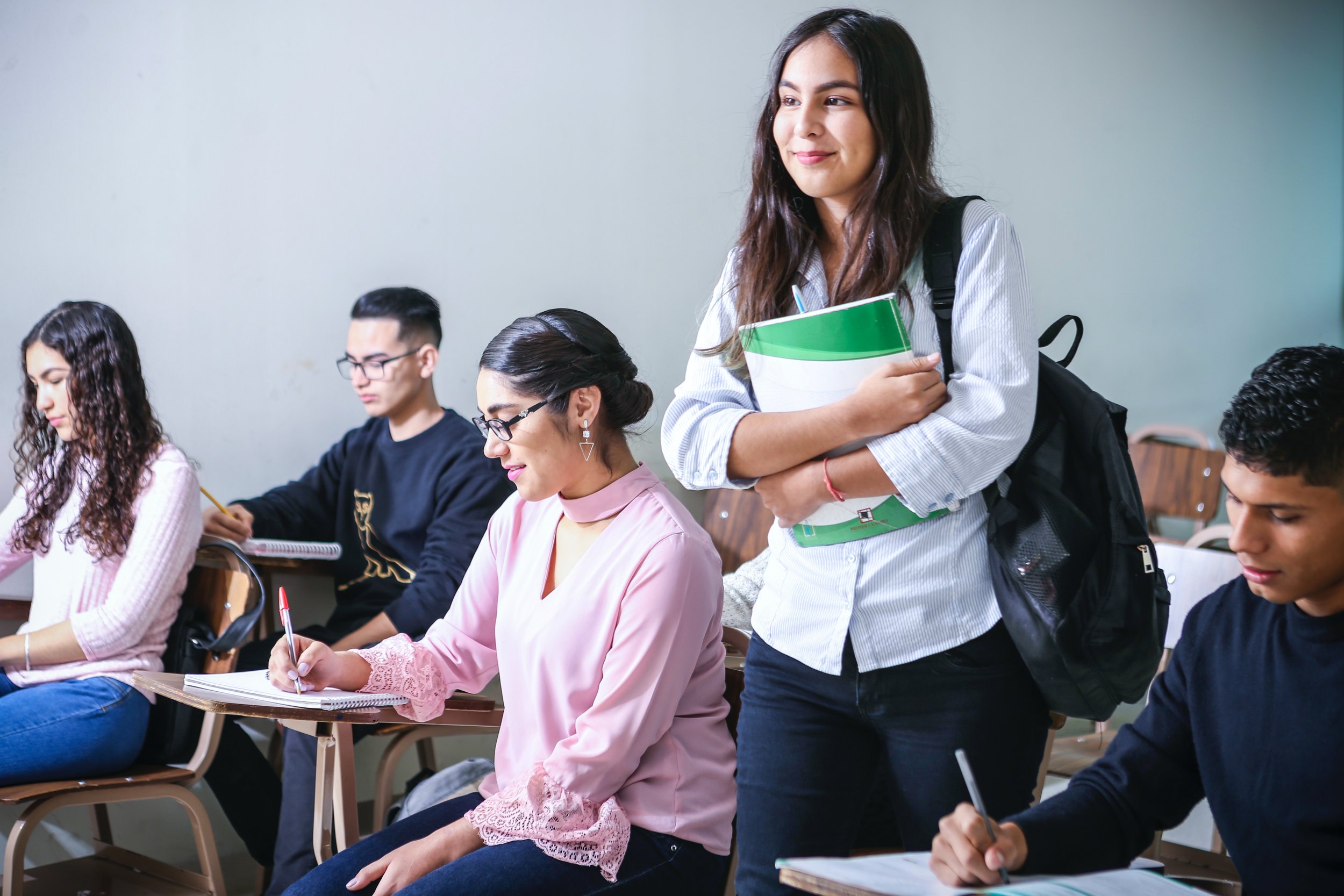
Research

Design Challenge Learning puts into practice what scholars in the fields of education, employment, and psychology are increasingly finding -- students need content and skills, structure and agency, knowledge and a sense of purpose. Research consistently shows that students learn best when they are engaged in meaningful and appropriately challenging tasks and when their learning is connected to their lives outside of school.
Peer-reviewed studies show the efficacy of project-based and problem-based learning and industry reports emphasize the need for students to develop the 21st century skills of critical thinking, collaboration, creativity, and problem-solving. These are the very skills students develop when engaged in design challenges. But equally important, design challenges bring joy to the classroom. Teachers and students love it when their classrooms are engaging and purposeful places of energy and participation.
We believe that developing agency, purpose, and hope is one way to combat the mental health challenges that too many of our students face. By incorporating research-backed teaching practices and curriculum design, we help teachers align design challenge learning with curricular standards, competencies, and the student-outcomes they seek.
For those looking to develop a deeper understanding of the research behind design challenge learning, the below reports and peer-reviewed articles are a good place to start. Please let us know what you’ve been reading, so we can keep this list current and relevant.

Baird, & Parayitam, S. (2019). Employers' Ratings of Importance of Skills and Competencies College Graduates Need to Get Hired: Evidence from the New England Region of USA. Education & Training (London), 61(5), 622–634.
Craig, T. & Marshall, J. (2019). Effect of project‐based learning on high school students’ state‐mandated, standardized math and science exam performance. Journal of Research in Science Teaching, 56(10), 1461–1488.
Darling-Hammond, Flook, L., Cook-Harvey, C., Barron, B., & Osher, D. (2020). Implications for educational practice of the science of learning and development. Applied Developmental Science, 24(2), 97–140.
Darling-Hammond, L., Hyler, M. E., Gardner, M. (2017). Effective Teacher Professional Development. Learning Policy Institute.
Dede, C. (2014). Executive summary of the role of digital technologies in deeper learning. Jobs for the Future.
Desai, Tippins, M., & Arbaugh, J. B. (2014). Learning through collaboration and competition: Incorporating problem-based learning and competition-based learning in a capstone course. Organization Management Journal, 11(4), 258–271.
Doppelt, Mehalik, M. M., Schunn, C. D., Silk, E., & Krysinski, D. (2008). Engagement and achievements: A case study of design-based learning in a science context. Journal of Technology Education, 19(2), 22.
Glazewski, & Ertmer, P. A. (2020). Fostering complex problem solving for diverse learners: engaging an ethos of intentionality toward equitable access. Educational Technology Research and Development, 68(2), 679–702.
Holmes, & Hwang, Y. (2016). Exploring the effects of project-based learning in secondary mathematics education. The Journal of Educational Research (Washington, D.C.), 109(5), 449–463.
Marr, Bernard Marr (2022). The Top 10 Most In-Demand Skills For The Next 10 Years. Forbes. Schools of the Future: Defining New Models of Education for the Fourth Industrial Revolution (2019). World Economic Forum.
The Future of Education and Skills: Education 2030. The Future We Want (2018). OECD Publishing.
